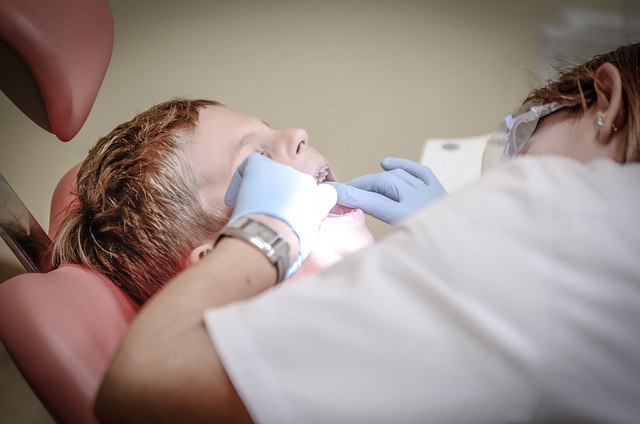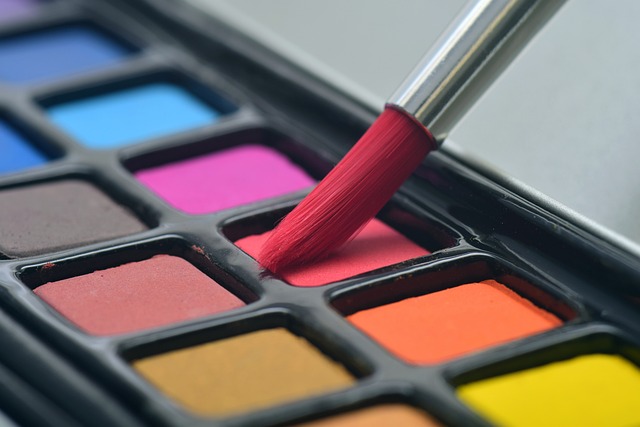Do you love the idea of having a million-dollar smile, but worry that veneers might leave your breath smelling less than fresh? Rest easy, as we delve into the world of oral hygiene and find out the truth behind this common concern.
1. Understanding the Basics: What are Veneers and How Do They Work?
Veneers are thin, custom-made shells that are designed to cover the front surface of teeth. They are primarily used for cosmetic purposes to improve the appearance of teeth that are discolored, chipped, misaligned, or worn down. Made from either porcelain or composite resin, veneers offer a long-lasting solution for enhancing your smile.
The process of getting veneers typically involves a few visits to the dentist. First, a small amount of enamel is removed from the tooth receiving the veneer. This is done to ensure that the veneer will fit properly and look natural. Next, an impression of the tooth is taken, which is used to create a custom veneer that matches the shape and color of your existing teeth. Once the veneer is made, it is bonded to the front of the tooth using a special dental adhesive. The result is a durable and natural-looking tooth restoration that can instantly transform your smile. If you’re considering veneers, it’s important to consult with a qualified dentist who can assess your specific dental needs and guide you through the process to achieve the best possible results.
2. Maintaining a Fresh Breath: The Importance of Oral Hygiene with Veneers
When it comes to keeping your breath fresh and maintaining oral hygiene with veneers, there are a few key considerations to keep in mind. First and foremost, proper brushing and flossing techniques are crucial. Although veneers are made to be durable and stain-resistant, it’s important to clean them regularly to prevent the buildup of plaque and bacteria.
Avoiding stain-causing foods and drinks such as coffee, tea, and red wine can also help to keep your veneers looking their best. Additionally, using a mouthwash specially formulated for veneers can provide an extra layer of protection against bacteria and bad breath. Regular dental check-ups and cleanings are equally important, as your dentist can identify any issues early on and provide guidance on how to properly care for your veneers.
- Brush your teeth: Use a soft-bristle toothbrush and a non-abrasive toothpaste to gently brush your veneers at least twice a day. Make sure to clean all sides of each tooth, paying extra attention to the gum line.
- Floss regularly: Even with veneers, it’s crucial to floss daily to remove any plaque or food particles that may be stuck between your teeth.
- Avoid certain foods and drinks: Acidic and staining substances can diminish the shine of your veneers. Limit your consumption of foods like berries, soy sauce, and beverages like cola and red wine.
- Use mouthwash: Opt for an alcohol-free, veneer-safe mouthwash to freshen your breath and kill any bacteria that may lead to bad breath.
- Visit your dentist: Regular dental check-ups every six months allow your dentist to assess the condition of your veneers and provide professional cleaning to ensure their longevity.
3. Debunking Misconceptions: Exploring the Link between Veneers and Bad Breath
There is a common misconception that veneers can cause bad breath. However, let’s debunk this myth once and for all. Veneers, which are thin shells made of porcelain or composite resin that are bonded to the front surface of teeth, do not contribute to bad breath.
Bad breath, medically known as halitosis, is primarily caused by poor oral hygiene and certain oral health conditions. Veneers, on the other hand, are merely cosmetic enhancements and do not directly affect the breath. Here are a few key points to keep in mind:
-
- Poor oral hygiene, such as inadequate brushing and flossing, allows bacteria to thrive in the mouth, leading to the production of volatile sulfur compounds that cause bad breath. Maintaining good oral hygiene practices is essential regardless of whether you have veneers or not.
- Underlying dental issues, such as gum disease or tooth decay, can also contribute to bad breath. It is crucial to address these issues promptly through regular dental check-ups and appropriate treatments, irrespective of whether veneers are present or not.
- Proper oral care routines, including brushing twice a day, flossing daily, using mouthwash, and cleaning the tongue, can help eliminate bacteria and prevent bad breath.
- If you have concerns about bad breath, it is advisable to consult with a dental professional who can assess your specific situation and provide guidance on proper oral hygiene practices and any necessary treatments.
By understanding the reality behind the link between veneers and bad breath, you can make informed decisions about your oral health and confidently enjoy the benefits of veneers without worrying about their impact on your breath.
4. Oral Care Essentials: Developing an Effective Veneer-friendly Routine
When it comes to maintaining your dental veneers and keeping them looking their best, it’s essential to develop an effective oral care routine. By following a few simple steps, you can ensure the longevity and overall health of your veneers.
Here are some essentials to include in your veneer-friendly routine:
-
- Brushing: Use a soft-bristled toothbrush and non-abrasive toothpaste to thoroughly clean your veneers. Brush gently in circular motions, paying special attention to the gum line and all tooth surfaces.
- Flossing: Regular flossing is crucial for maintaining healthy gums and preventing plaque buildup around your veneers. Be cautious when flossing near the edges of your veneers to avoid any damage.
- Mouthwash: Incorporating a veneer-friendly mouthwash into your routine can help eliminate bacteria, freshen your breath, and promote overall oral health. Look for an alcohol-free formula that won’t irritate your gums or affect the integrity of your veneers.
- Avoiding stain-causing substances: Stay away from excessive consumption of staining substances like coffee, tea, red wine, and tobacco, as these can affect the appearance of your veneers over time.
By incorporating these essential steps into your daily oral care routine, you’ll not only maintain the longevity of your veneers but also contribute to your overall dental health.
5. The Role of Brushing and Flossing: Key Steps to Combat Bad Breath with Veneers
Proper oral hygiene plays a crucial role in combating bad breath when you have veneers. Brushing and flossing are essential steps to maintain the health and freshness of your breath. Here are key steps to incorporate into your daily routine:
-
- Brush twice a day: Use a soft-bristle toothbrush and a fluoride toothpaste to gently brush your veneers, focusing on each tooth’s surface, gumline, and the back of your mouth.
- Floss daily: Flossing removes plaque and food particles that get trapped between your veneers and natural teeth. Be sure to use a gentle flossing technique and reach all the way to the gumline.
- Use mouthwash: Incorporate an antimicrobial mouthwash into your routine to kill bacteria and freshen your breath. Look for one that is alcohol-free to avoid drying out your mouth.
Additionally, it’s important to pay attention to your diet and avoid foods and drinks that may contribute to bad breath. Limit your consumption of garlic, onions, coffee, and alcohol, as they can leave a strong odor in your mouth. Stay hydrated by drinking plenty of water throughout the day to help prevent dry mouth, which can also contribute to bad breath. By following these key steps, you can maintain excellent oral hygiene and ensure your veneers stay fresh and free from unpleasant odors.
6. Don’t Forget Your Tongue: How Tongue Cleaning Can Improve Veneer Breath
Veneer breath is a common issue that many people struggle with. If you have veneers, it’s essential to take care of your tongue as well. Tongue cleaning is a simple but highly effective way to improve your breath and maintain the longevity of your veneers.
So, why is tongue cleaning so important? Here’s what you need to know:
- Removes bacteria: Bacteria can accumulate on the surface of your tongue, leading to bad breath. Cleaning your tongue helps remove these bacteria, leaving your mouth fresh and odor-free.
- Enhances oral hygiene: Tongue cleaning is an excellent addition to your oral hygiene routine. By eliminating bacteria and debris from your tongue, you reduce the risk of developing dental issues such as gum disease and tooth decay.
- Improves taste sensation: A clean tongue enhances your ability to taste food properly. Lingering bacteria can inhibit your taste buds, affecting your overall enjoyment of eating.
When it comes to tongue cleaning, there are a few different options available:
-
- Tongue scrapers: These small, handheld devices are designed to gently scrape away bacteria and debris from the surface of your tongue. Choose a scraper with a smooth edge to avoid any discomfort.
- Tongue brushes: Similar to a toothbrush, tongue brushes have soft bristles that effectively clean your tongue. Make sure to use gentle strokes along the surface to avoid irritation.
By incorporating tongue cleaning into your daily oral care routine, you can experience fresher breath and maintain the health of your veneers for years to come. Don’t forget about your tongue – it plays a crucial role in your overall oral health!
7. The Power of Mouthwash: Choosing the Right Products for Veneer Oral Hygiene
Maintaining good oral hygiene is crucial for the longevity and appearance of dental veneers. One effective way to enhance your oral care routine is by incorporating mouthwash into your daily regimen. However, it is essential to choose the right mouthwash to ensure the health and protection of your veneers.
When selecting a mouthwash, opt for alcohol-free options. Alcohol can be harsh and may cause damage to the veneer material over time. Look for mouthwashes that contain fluoride, as it helps strengthen teeth and prevents tooth decay. Additionally, mouthwashes with antibacterial properties can reduce the risk of gum disease and maintain overall oral health. It is advisable to consult with your dentist to determine the most suitable mouthwash for your specific needs and to ensure it aligns with the care instructions provided for your veneers.
8. On-the-Go Solutions: Tips for Maintaining Fresh Breath with Veneers throughout the Day
Maintaining fresh breath with veneers throughout the day is essential for keeping your smile looking and feeling its best. While veneers are a great way to improve the appearance of your teeth, it’s important to take extra care to ensure they stay clean and odor-free. Here are some on-the-go solutions and tips to help you maintain fresh breath and keep your veneers looking their best:
- Brush your teeth and gums thoroughly at least twice a day with a soft-bristled toothbrush and fluoride toothpaste. Be gentle and avoid using excessive force, as this can damage your veneers.
- Floss daily to remove any food particles and plaque that may have accumulated between your teeth and around your veneers. Use a gentle, sliding motion to avoid dislodging or damaging your veneers.
- Use an antibacterial mouthwash to help kill bacteria and freshen your breath. Look for a mouthwash that is alcohol-free, as alcohol can damage the bonding material of your veneers.
- Avoid eating foods that are known to cause bad breath, such as garlic and onions. Opt for fresh fruits and vegetables instead, which can help naturally freshen your breath.
In addition to these tips, it’s important to
9. Professional Cleanings: Why Regular Dental Check-ups are Crucial for Veneer Breath
Regular dental check-ups are essential for maintaining optimal oral health, especially when it comes to veneer breath. Professional cleanings play a crucial role in preventing and treating the build-up of plaque, tartar, and stains on veneers. Here’s why it’s important to schedule regular dental visits for maintaining fresh breath and healthy veneers:
1. Thorough cleaning: During professional cleanings, dental hygienists use specialized tools and techniques to remove plaque, tartar, and stains that regular brushing and flossing may miss. This thorough cleaning not only helps in achieving and maintaining fresh breath but also ensures that veneers remain free from unsightly stains and discoloration.
2. Check for complications: Regular dental check-ups allow your dentist to examine your veneers and detect any potential issues early on. They can assess the integrity of your veneers, identify signs of damage or wear, and address any concerns you may have. Early detection and intervention can prevent complications, such as gum inflammation or infections, preserving the health and longevity of your veneers.
Remember, maintaining fresh breath and a healthy smile goes beyond just brushing and flossing. By scheduling regular dental check-ups and professional cleanings, you can ensure that your veneers remain in excellent condition, contributing to your overall oral health and confidence.
10. Troubleshooting Tips: Addressing Persistent Bad Breath with Veneers
Addressing persistent bad breath with veneers can be a frustrating issue to deal with, but there are several troubleshooting tips that can help alleviate the problem. Here are some effective strategies to consider:
-
- Maintain good oral hygiene: Brushing your teeth at least twice a day and flossing daily is crucial to remove plaque and food particles that can contribute to bad breath. Additionally, using an antimicrobial mouthwash can help kill bacteria and freshen your breath.
- Avoid certain foods and drinks: Some foods and beverages, such as garlic, onions, coffee, and alcohol, are known to cause bad breath. Limiting your consumption of these items can help reduce the intensity of your breath odor.
- Stay hydrated: Drinking plenty of water helps keep your mouth moist and stimulates saliva production, which naturally cleanses your mouth and prevents dryness, a common cause of bad breath.
- Quit smoking: Smoking not only stains veneers but also leads to severe breath odor. By quitting smoking, you can improve the smell of your breath and enhance your overall oral health.
If you follow these troubleshooting tips consistently and still experience persistent bad breath with veneers, it’s important to reach out to your dentist. They can assess if there are any underlying issues with your veneers or provide further guidance on managing bad breath. Remember, addressing bad breath is essential not only for your oral health but also for your overall confidence and well-being.
Conclusion
In conclusion, maintaining proper oral hygiene is crucial when it comes to veneers. Brushing, flossing, and regular dental check-ups are essential to prevent bad breath. Remember, veneers alone do not cause odor, but neglecting oral hygiene can lead to bacterial growth. Stay diligent and achieve a fresh and confident smile.



